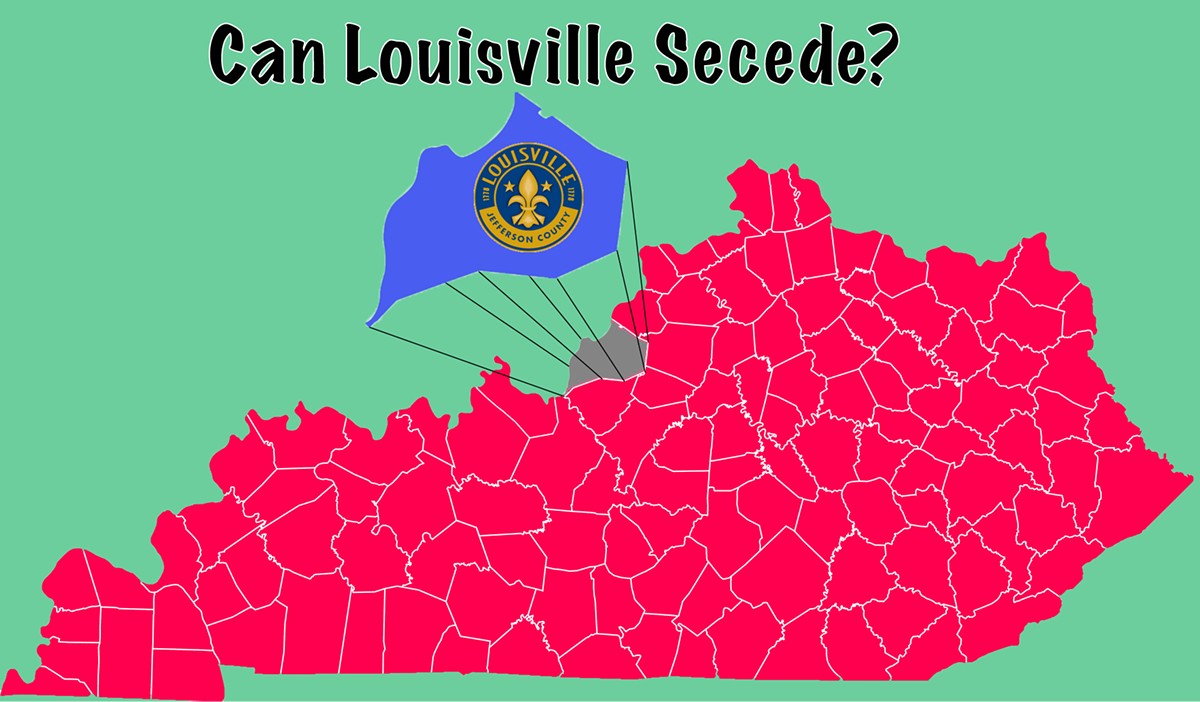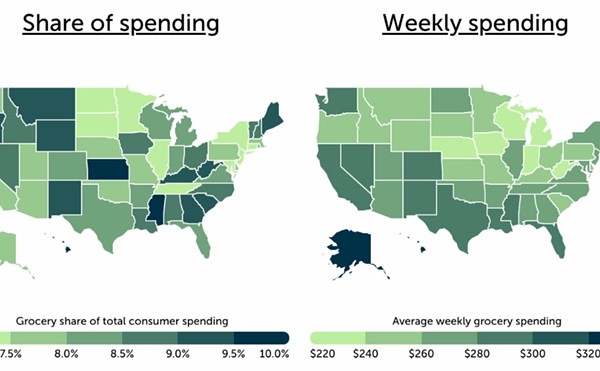Forget? Hell, yes.
We don’t live in the United States of Amnesia for nothing.
How else to explain the Pyrrhic, pointless secession talk that crops up about every two-to-four years, or whenever there’s an election whose outcome has a lot of us completely bugging.
Recent history shows it’s equal opportunity bugging that runs red and blue.
Four years ago, thousands of Kentuckians who objected to Barack Obama’s re-election as the first African-American president of the United States were signing petitions to pull out of the Union. (Eight years ago, it was people who had the vapors over his first election to the presidency who were doing the same yapping.)
Locally, in this year’s model the talk cropped up immediately after only Louisville and Lexington and their counties — Jefferson and Fayette — went for Democrat Hillary Clinton in last Tuesday’s presidential election, two tiny, outpost pinpricks of blue in a severed arterial gusher of red that was the rest of Kentucky and our fellow 118 counties.
Not remotely incidental, regarding the magical thinking of secession, for the first time in almost 100 years, the Kentucky House — the very last legislative chamber in the South held by Democrats... remove your hats and ponder that extinction for a moment — flipped Republican, too.
Which means the GOP will now be able to run the table in Kentucky’s executive and legislative branches (hang on to your removed hats), making us a veritable Mini-Me to what happened with the Dr. Evil takeover of the same in D.C.
All of which left some of us dazed and confused (hey, come to think of it, Frankfort, where’s our marijuana vote?) and others prostrate with grief (no kidding; please pass me the cold compress) the very same week we also lost the guy who wrote, presciently, “First we take Manhattan, then we take Berlin.”
Nationally and naturally, Californians with their cool, buzzy CalExit petition — the latest effort to try to place an initiative on the ballot for Golden State voter approval — are out front in the trending 2016 state secession talk.
Yep, for a country called the United States of America, there sure is a lot of cyclical secesh talk — even long, long after the time the contention escalated beyond jabber to a very deadly war, one we still seem to be fighting amongst ourselves, over whether some of us could just decide to pack up, pick up our ball and get out of Dodge.
Hello! Remember the Civil War?
Its outcome would seem to provide us with an unequivocal answer for the ages:
No, Americans, you cannot do that.
A native Kentuckian named Abraham Lincoln was president during that terrible, protracted bloodshed, and it was his view that the U.S. Constitution prohibited the Confederate states from seceding.
Beyond the illegality, according to historians Lincoln believed secession would lead to anarchy, that it undercut the notion that we were fellow Americans — not enemies — and that it would kill what was then the world’s only government of, by and for the people.
That Lincoln’s side won that godawful war would seem to have ended any argument over secession and its rebel-rebels. But there’s much more to it than Lincoln’s view.
A chat with Dr. Dewey Clayton, a political science professor at the University of Louisville, leads to learning about an 1869 U.S. Supreme Court case, Texas v. White.
It strikes what would appear to be the final blow, the forever promise, for the “united” part of our name. A majority of the justices ruled that the country’s founding Articles of Confederation, followed by our Constitution, made the union “perpetual” and “indissoluble.”
Shouldn’t come as a surprise that it was Texas, still a contrarian state, that brought the challenge that’s at the heart of the case. It had to do with bonds and the Confederate States — don’t act like you want the details — but the court essentially ruled that Texas, despite joining the Confederacy, had never left the Union because states can’t secede. Ev-ah.
In 20th century pop-culture parlance more understandable by Clickbait Nation, Texas was like Michael Corleone in “Godfather III,” when he whined that just when he thought he was out, they pulled him back in. Or, better yet, Texas was like an occupant in the Hotel California: “You can check out, but you can never leave.” The Union, that is.
Same goes for cities trying to secede from states.
Dr. Clayton offers a “probably not” when asked if a city can pull out from a state. Explanation: There’s something called Dillon’s Rule (not Bob, different spelling), also emerging from immediate post-Civil War law, which says local governments derive their authority from the state. Which means, dim those high beams, local bright eyes. You think Frankfort will cut Louisville loose? Aside from the dollar bonanza it provides the state, the home-rule argument didn’t even work with the Kentucky Supreme Court when Louisville tried to raise the local minimum wage for the least of these among us.
No one cares for grammar anymore, but it does matter. Even in The Emoticon Age.
As historian Shelby Foote put it: Before the Civil War, we were “the United States are.” After the war, it was “the United States is.”
For better or worse, we know what the definition of “is” is. At least in this case.
We are what it is.
Consider us KenSTUCKy.






